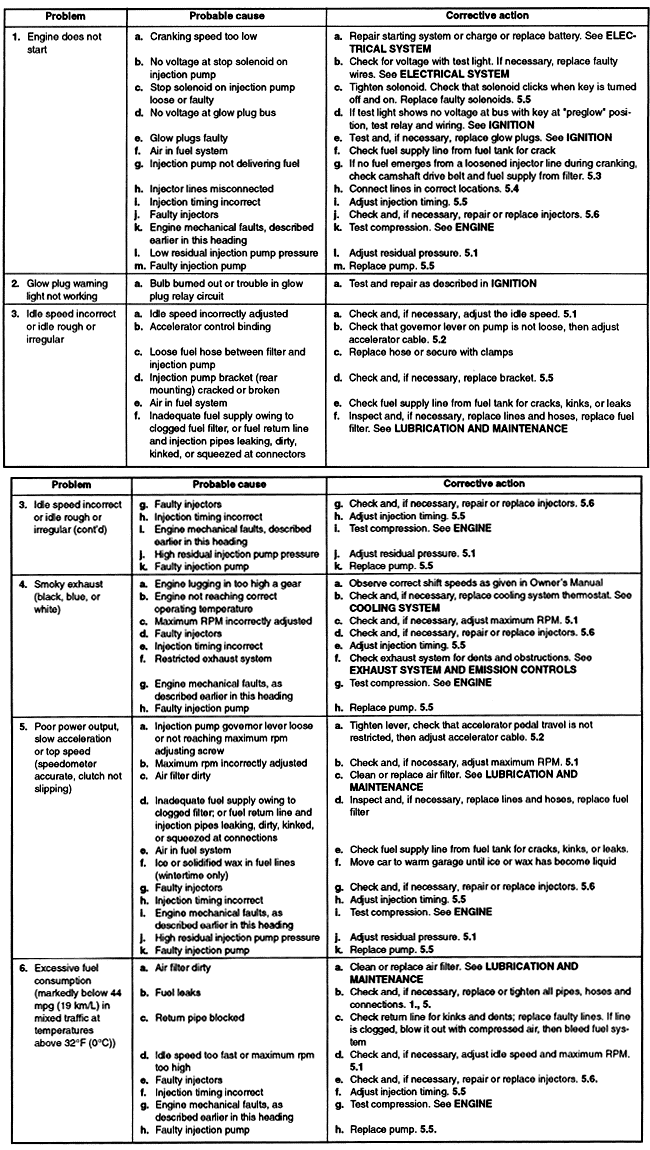3.1 Basic Troubleshooting PrinciplesProper operation of the diesel engine requires that it be supplied with clean fuel, that it have an unrestricted supply of air, and that the fuel be delivered, at high pressure, at the right time. The battery and starting system are also important. For starting, they must be able to turn the engine fast enough (at least 150 RPM) to begin compression ignition. Fuel must be of the correct grade, properly winterized when necessary for cold-start conditions, and clean. Dirt and water can interfere with combustion and cause problems much more readily than in a gasoline engine. Because the diesel engine's speed is controlled by the amount of fuel injected, and not by the amount of air admitted past a throttle plate, the air intake must be unrestricted. A clogged air filter or incorrect valve clearance can restrict the air and cause power loss. The injection pump produces the high pressure necessary to open the injectors and spray and vaporize the fuel. Fuel leaks or air in the fuel lines, because it is compressible, may inhibit system pressure. Since power is controlled by the amount of fuel injected, low fuel pressure may cause sluggish performance. Injection timing controls the amount of time the fuel has to burn. For cold starting, when the compression heat necessary for combustion is dissipated quickly by the cold engine, injection timing is advanced to give the fuel more time to burn. At higher rpm, there is less time for fuel to burn, so injection timing is advanced to start the fuel burning sooner. Since the injection pump is driven by the engine and externally mounted, its precise fuel metering and timing can be degraded by such things as a loose timing belt, worn sprocket, or loose mounting bolts. Table a lists symptoms, their probable causes, and corrective actions. The boldface numbers in the corrective action column refer to headings in this section where the repairs are described. Table a. Diesel Engine Fuel Injection Troubleshooting
|
